Exclusive 3:16 Interview With Dennis Diderot
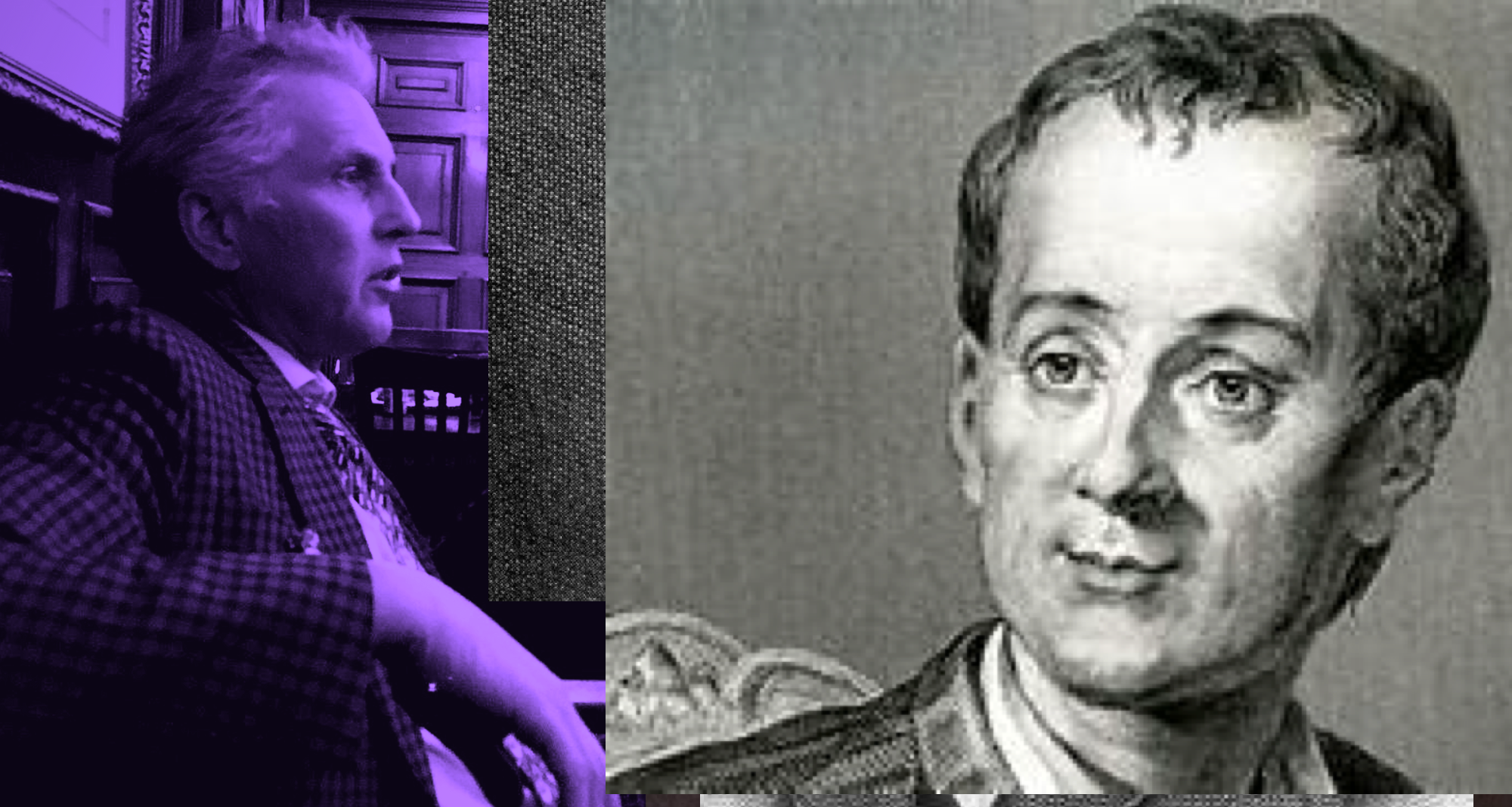
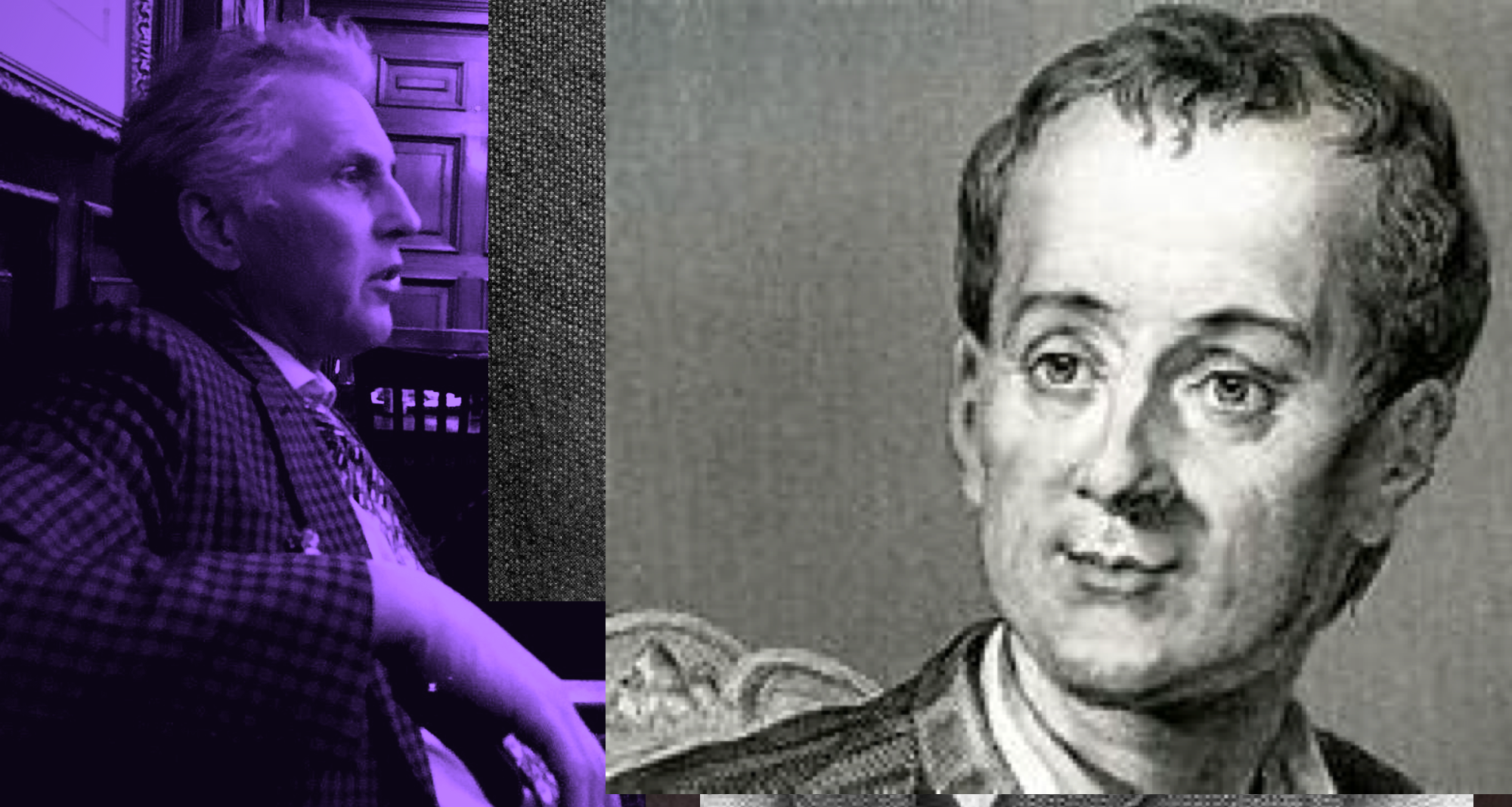
Wolfe, Charles T. and J.B. Shank, "Denis Diderot", The Stanford Encyclopedia of Philosophy (Summer 2024 Edition) write: 'Because of his public leadership of the philosophe party in eighteenth-century France, Voltaire stands today as the iconic example of the French Enlightenment philosopher. Denis Diderot (1713–1784) is often seen as Voltaire’s second in that role since it was around both men that the Enlightenment philosophes rallied as a movement after 1750. The epochal project, which Diderot jointly pursued with Jean le Rond D’Alembert, to “change the common way of thinking” through a comprehensive Encyclopedia, or Reasoned Dictionary of the Arts, Sciences, and Trades provided the emergent philosophe movement with the cause around which they would coalesce. Diderot also fought vigorously with Voltaire on behalf of the Encyclopédie project and its principles, becoming as a result a public leader of the Enlightenment philosophical party in France alongside Voltaire. He also worked, like Voltaire, as a writer and critical intellectual who willingly positioned himself against the grain of established authority, and one who used philosophy as a vehicle for political and social activism. Yet Diderot’s philosophy pursued many more agendas and dimensions than Voltaire’s. He also left behind a corpus of philosophical writings that marks him out as arguably the most sophisticated of all the Enlightenment philosophes, and as one of the great philosophical thinkers of the eighteenth-century.'
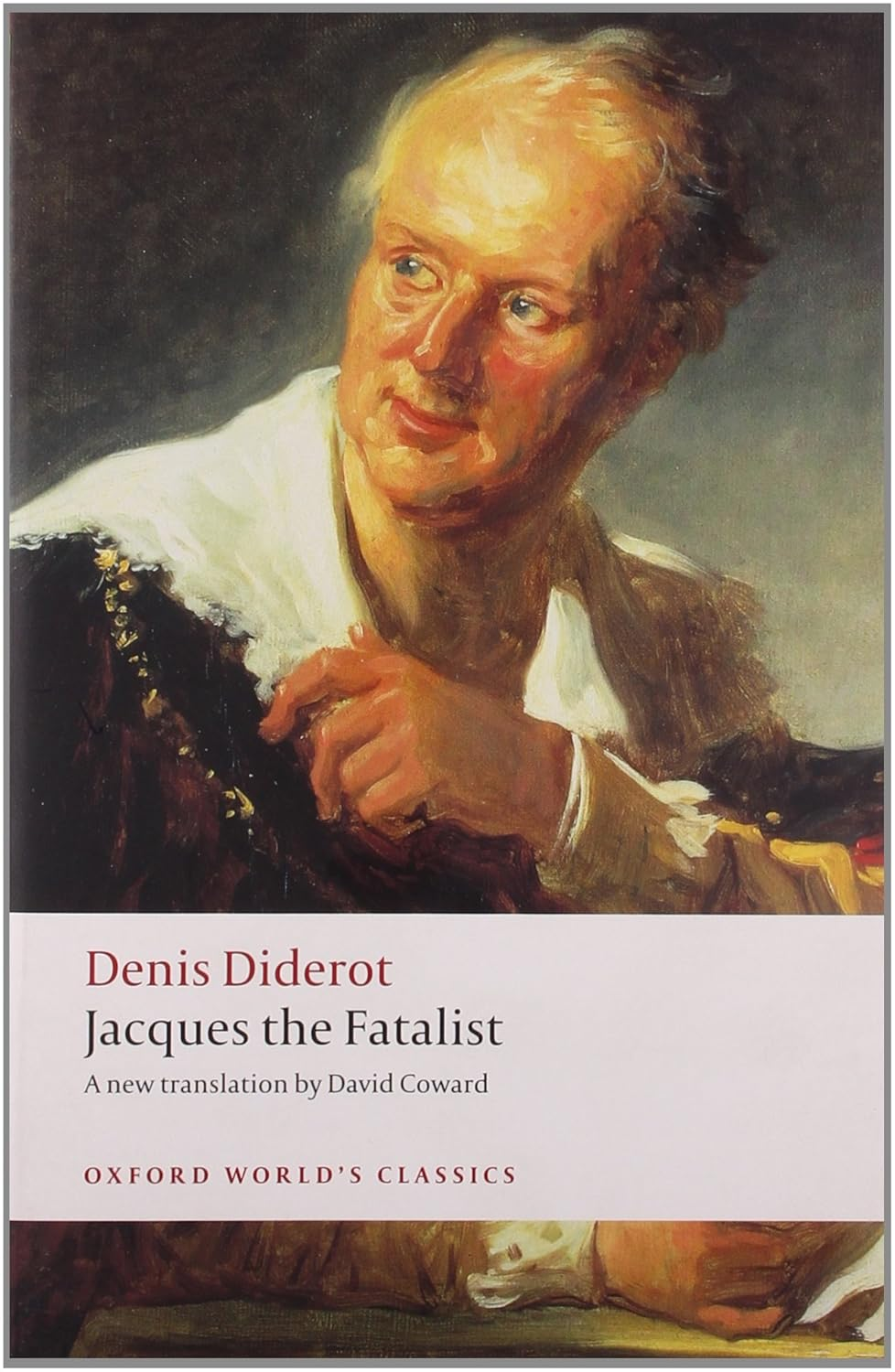
3:16: What made you become a philosopher?
Dennis Diderot: The Enlightenment Richard. Other men walk in darkness; the philosopher, who has the same passions, acts only after reflection; he walks through the night, but it is preceded by a torch. The philosopher forms his principles from an infinity of particular observations. Most people adopt principles without thinking of the observations that have produced them, they believe the maxims exist, so to speak, by themselves. But the philosopher takes maxims from their source; he examines their origin; he knows their proper value, and he makes use of them only in so far as they suit him.
3:16: Is it truth you’re looking for?
DD: Yes Richard. Truth is not for the philosopher a mistress who corrupts his imagination and whom he believes to be found everywhere; he contents himself with being able to unravel it where he can perceive it. He does not confound it with probability; he takes for true what is true, for false what is false, for doubtful what is doubtful, and probable what is only probable. He does more, and here you have a great perfection of the philosopher: when he has no reason by which to judge, he knows how to live in suspension of judgment... The philosophical spirit is, then, a spirit of observation and exactness, which relates everything to true principles. What I like is a philosophy clear, definite, and frank, such as you have in the System of Nature. The author is not an atheist on one page and a deist on another. His philosophy is all of one piece.
3:16: You place observation and reason as the two tools at hand to discover truth don’t you?
DD: Ah Richard, Reason is to the philosopher what grace is to the Christian. Grace moves the Christian to act, reason moves the philosopher. The philosopher forms his principles on an infinity of particular observations. … He does not confuse truth with plausibility; he takes for truth what is true, for forgery what is false, for doubtful what is doubtful, and probable what is probable. … The philosophical spirit is thus a spirit of observation and accuracy.
3:16: And you see doing this as a huge project, one that needs to consume everyone – this is why everyone needs to be involved?
DD: It’s huge Richard, yes. You will see how many things are still missing, and you will be obliged to get the assistance of a large number of men who belong to different classes, priceless men, but to whom the gates of the academies are nonetheless closed because of their social station. All the members of these learned societies are more than is needed for a single object of human science; all the societies together are not sufficient for a science of man in general.
3:16: Your big project is to try and put everything into a gigantic encylopedia so all our knowledge can be read and distributed. This is the first time anyone thought of doing this isn’t it.
DD: The purpose of an encyclopedia is to collect knowledge disseminated around the globe; to set forth its general system to the men with whom we live, and transmit it to those who will come after us, so that the work of preceding centuries will not become useless to the centuries to come; and so that our offspring, becoming better instructed, will at the same time become more virtuous and happy, and that we should not die without having rendered a service to the human race in the future years to come.
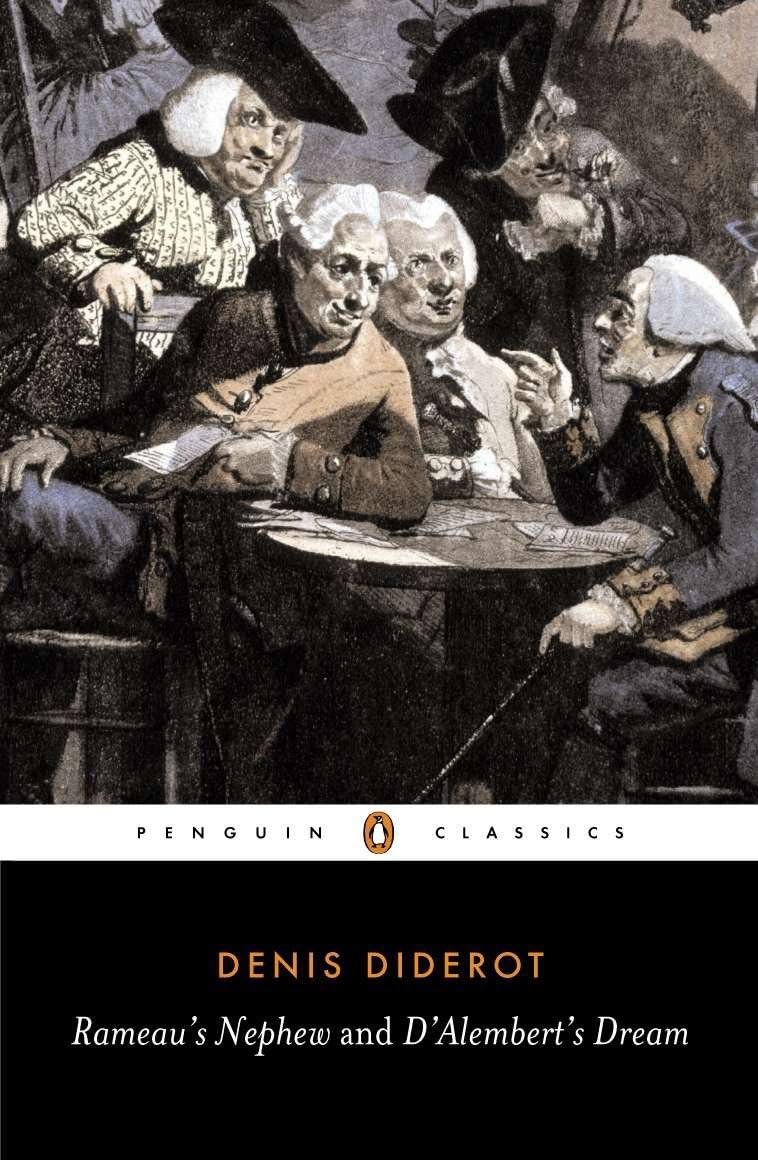
3:16: Kings and priests oppose your project don’t they?
DD: Man will never be free until the last king is strangled with the entrails of the last priest.
3:16: Sounds a bit harsh Dennis.
DD: Haha. Richard, the philosopher has never killed any priests, whereas the priest has killed a great many philosophers. From fanaticism to barbarism is only one step. Richard, let’s face it, those who fear the facts will forever try to discredit the fact-finders. All things must be examined, debated, investigated without exception and without regard for anyone's feelings. No man has received from nature the right to command his fellow human beings.
3:16: You don’t like religion then?
DD: The Christian God is a father who prizes his apples but sets little value on his children. Look Richard, a suburb resounds with outcries: the ashes of one of the elect perform more prodigies there than Jesus Christ performed in the whole of his life. People run, or are carried to the spot, and I follow the crowd. I have no sooner arrived than I hear people exclaiming "Miracle!" I approach, I look, and I see a little lame boy walking with the help of three or four charitable onlookers; and the crowd, awe-struck, cry "Miracle! Miracle!" Where is the miracle, then, you fools? Cannot you see that the rogue has done no more than change one pair of crutches for another? Would a God full of goodwill find pleasure in bathing in tears? Would such terrors not be a reflection on his clemency? If criminals had to appease the fury of a tyrant, what more could be expected of them than this?
3:16: You think people are inconsistent – irrational – in their talk of God don’t you?
DD: People begin to speak to us of God too soon, and another mistake is that his presence is not sufficiently insisted upon. Men have banished God from their company and have hidden him in a sanctuary; the walls of a temple shut him in, he has no existence beyond. I say, break down these limitations that hamper ideas; set God free; see him everywhere, as he is everywhere, or say that he is non-existent. If I had a child to bring up, I would make his God his companion in such a real sense that he would perhaps find it less difficult to become an atheist, than to escape his presence. Instead of confronting him with a fellow-man (whom maybe he knows to be worse than himself) I would say outright: "God hears you and you are lying." Young people are influenced by their senses. I would multiply about him symbols indicating the divine presence. If there were a gathering at my house, I would leave a place for God, and I would accustom him to say: "We were four-God, my friend, my tutor, and myself.
3:16: So you have no time for theology?
DD: Wandering in a vast forest at night, I have only a faint light to guide me. A stranger appears and says to me: 'My friend, you should blow out your candle in order to find your way more clearly.' This stranger is a theologian.
3:16: So in a sense it’s not ignorance but prejudice that you’re up against.
DD: Ignorance is less remote from the truth than prejudice.
3:16: How does one cut through one’s own prejudices? How have you managed it?
DD: Skepticism is the first step on the road to philosophy. We do not know nature; causes hidden in her breast might have produced everything. Observe the polyp of Trembley: does it not contain in itself the causes which bring about regeneration? Why then would it be absurd to think that there are physical causes by reason of which everything has been made, and to which the whole chain of this vast universe is so necessarily bound and held that, nothing which happens, could have failed to happen,—causes, of which we are so invincibly ignorant that we have had recourse to a God, who, as some aver, is not so much as a logical entity? Thus to destroy chance is not to prove the existence of a supreme being, since there may be some other thing which is neither chance nor God—I mean, nature. It follows that the study of nature can make only unbelievers; and the way of thinking of all its more successful investigators proves this.

3:16: What do you say to those who say that your thinking like this is likely to disrupt the order of things and replace it with chaos and anarchism?
DD: Watch out for the fellow who talks about putting things in order! Putting things in order always means getting other people under your control.
3:16: And what about those who say that because you’re eroding the old verities we’ve lived by traditionally for so long you make everything feel like a joke, trivial – unbearably light?
DD: What a fine comedy this world would be if one did not play a part in it.
3:16: Ok, so let’s look at your approach to philosophy and knowledge. We have some guys – Josh Knobe is the parade case – who call themselves experimental philosophers. You sound a bit like them. They get criticised a lot by some for not just staying in their armchairs to do philosophy a priori.
DD: This Knobe character sounds cool. Well, Richard, Experimental philosophy does not know what its work will yield or fail to yield; but it works without pause. On the contrary, rational philosophy weighs the possibilities, makes pronouncements, and stops there. It boldly declares, light cannot be decomposed; experimental philosophy listens, and remains silent for centuries; then suddenly shows us the prism, and declares, light is decomposed.
3:16: Is this why metaphysics is of little interest to you?
DD: Chemists, physicians, naturalists and all of those engaged in experimental practices (l’art expérimental) seem to me to be on the point of avenging metaphysics, and applying the same definition to the mathematician. There are three principal means of acquiring knowledge... observation of nature, reflection, and experimentation. Observation collects facts; reflection combines them; experimentation verifies the result of that combination. We are on the verge of a great revolution in the sciences. Given the taste people seem to have for morals, belles-lettres, the history of nature and experimental physics, I dare say that before a hundred years, there will not be more than three great geometricians remaining in Europe. The science will stop short where the Bernoullis, the Eulers, the Maupertuis, the Clairauts, the Fontaines and the D’Alemberts will have left it…. We will not go beyond.
3:16: Interesting that you think math has had its day.
DD: The reign of mathematics has ended. Tastes have changed, in favour of natural history and letters.
3:16: To some this approach without metaphysics grounding it might sound like a combination of mere hypotheses and eclecticism?
DD: Richard, the eclectic does not randomly gather together truths, nor leave them in isolation; even less does she force them into some determinate plan. I thought the wing of a butterfly brought me closer to divinity than a volume of metaphysics. In order to shake a hypothesis, it is sometimes not necessary to do anything more than push it as far as it will go.
3:16: So what is your perspective on nature and the world?
DD: What is this world? A complex whole, subject to endless revolutions. All these revolutions show a continual tendency to destruction; a swift succession of beings who follow one another, press forward, and vanish; a fleeting symmetry; the order of a moment. The world is eternal for you, as you are eternal to the being that lives but for one instant. Yet the insect is the more reasonable of the two. For what a prodigious succession of ephemeral generations attests your eternity! What an immeasurable tradition! Yet shall we all pass away, without the possibility of assigning either the real extension that we filled in space, or the precise time that we shall have endured. Time, matter, space — all, it may be, are no more than a point.
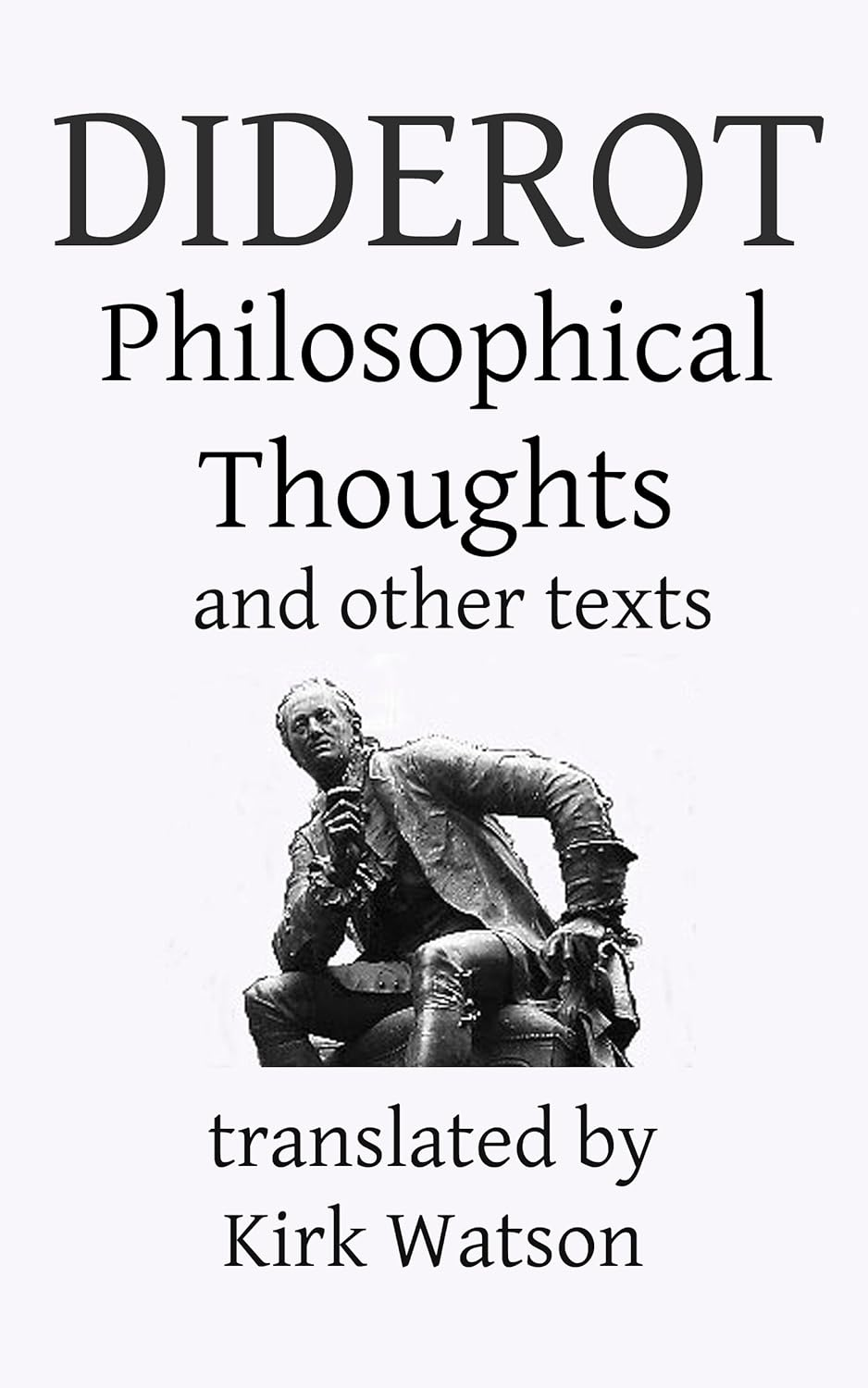
3:16: Why are you holding up an egg Dennis?
DD: Do you see this egg? With this you can overthrow all the schools of theology, all the churches of the world. What is this egg? An unsensing mass, prior to the introduction of the seed [germe]; and after the seed has been introduced, what is it then? Still an unsensing mass, for the seed itself is merely an inert, crude fluid. How will this mass develop into a different level of organisation, to sensitivity and life? By means of heat. And what will produce the heat? Motion.
3:16: So do you think everything is a single substance and that life is in everything, kind of like the panpsychists say?
DD: Matter is sensitive as demonstrated by the development of the egg, an inert body which by means of heat alone moves to the state of a sensing, living being. Only matter exists, and that it is sufficient to explain everything. There is only one substance in the universe.
3:16: So you are happy to embrace the seeming paradox that arises from saying that inert stuff lives?
DD: Richard, many evening have been spent teasing me about my paradox. People gave me beautiful pears that were alive, grapes that could think. And I said: Those who loved each other during their lives and arrange to be buried next to one another are maybe not as mad as one thinks. Their ashes may be pressed together, mingling, uniting. What do I know? Maybe they have not lost all feeling, all memory of their prior state. Maybe they have a remainder of heat and life, which they enjoy in their own fashion, at the bottom of the cold urn in which they rest. We judge the life of elements by the life of crude aggregates. Maybe they are entirely different entities…. When the polyp is divided into a hundred thousand parts, the primitive, generational animal is no longer, but all of its principles are still alive. If there were a law of affinity amidst our principles, if we were entitled to compose a common being; if, in following centuries, I were to comprise a whole again; if the molecules of your dissolved lover were to stir, to move about, and search out yours, scattered throughout nature! Grant me this chimaera. It is sweet to me.
3:16: This is where you’ve been called radical, in that you don’t separate mankind from the rest of nature like theologians do.
DD: Richard, this sensitivity … if it is a general and essential quality of matter, then stones must sense nature as perpetually in action and reaction; everything being destroyed in one form and recomposed in another; sublimations, dissolutions and combinations of all kinds, in the general movement or rather fermentation of the universe. I say: sensitivity or touch is common to all beings. You can practice geometry and metaphysics as much as you like; but I, who am a physicist and a chemist, who take bodies in nature and not in my mind, I see them as existing, various, bearing properties and actions, as agitated in the universe as they are in the laboratory where if a spark is in the proximity of three combined molecules of saltpetre, carbon and sulphur, a necessary explosion will ensue.
3:16: You don’t think we have souls because you don’t think we have bodies – or rather, what we take as the body is not an inert thing requiring something extra – a soul say – to animate it. In this sense bodies are mysteries requiring a solution, and once we’ve worked out what they are a mind/body or mind/soul dualism won’t be required. Is that right?
DD: Quite! As a physicist one should never say the body qua body, because this is no longer physics, it is making abstractions which lead to nothing. Have you ever thought seriously about what it is to live? … Life is not just motion, it is something else. The action of the soul on the body is the action of one part of the body on another and the action of the body on the soul is again that of one part of the body on another. So wherever I read soul I replace it with man or animal. Whatever idea we initially have of the soul, it is necessarily a mobile, extended, sensitive and composite entity. It grows tired just like the body, it rests like the body, it loses its control over the body just as the body loses its control over the soul…. Is the soul gay, sad, angry, tender, shy, lustful? It is nothing without the body. The soft substance of the brain is a mass of sensitive and living wax, which can take on all sorts of shapes, losing none of those it received, and ceaselessly receiving new ones which it retains. There is the book. But where is the reader? The reader is the book itself. For it is a sensing, living, speaking book, which communicates by means of sounds and gestures the order of its sensations. Without the idea of the whole, philosophy is no more. Everything changes; everything passes; nothing remains but the whole. ‘Every cause is an effect’ seems axiomatic to me.
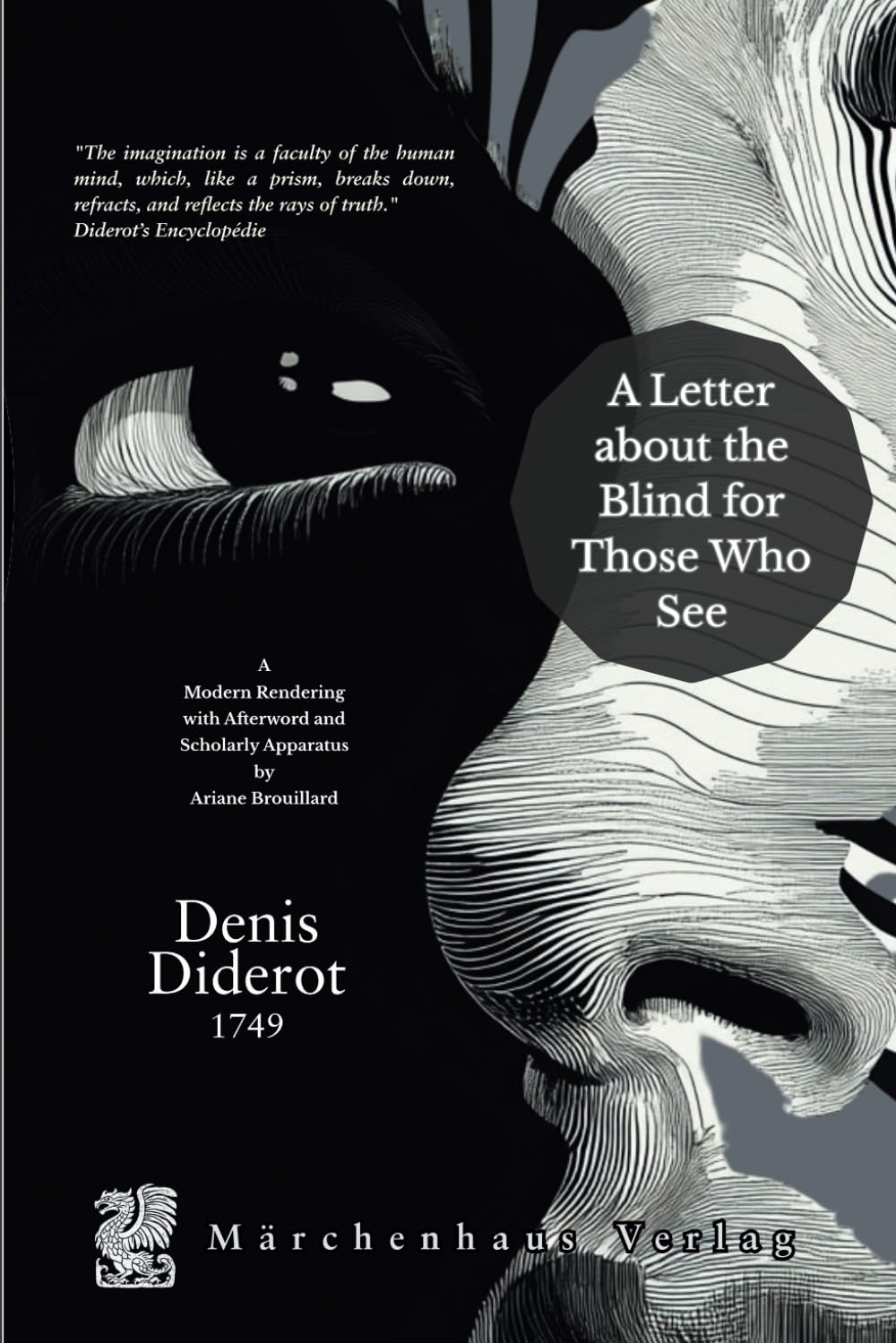
3:16: So our perceptions are the key to understanding things?
DD: There is only one operation in man, sensing. This operation is … never free. Perception comes from sensation; from perception, we get reflection, meditation and judgment. There is nothing free in intellectual operations, or in sensation. And there is only one kind of cause … physical causes. My idea would be to decompose a man, so to speak, and examine what he derives from each of the senses he possesses. I recall how I was once concerned with this sort of metaphysical anatomy, and had found that of all the senses, the eye was the most superficial, the ear the most proud, smell the most pleasurable, and taste the deepest, most philosophical sense. It would be a pleasant society, I think—one composed of five people, each of whom only possessed one sense. They would undoubtedly call each other mad, and I leave you to imagine how right they might be. Yet this is an image for what happens to everyone: one only has one sense and one judges on everything.
3:16: And like everything in nature you see us as perpetually changing?
DD: I am a man, and I require causes proper to man. Without regard for the sum of elements of which I am composed, I am one, and a cause only has one effect. I have always been one single cause [une cause une], thus I have never had more than one effect to produce; my duration is thus nothing more than a succession of necessary effects. In one and the same man, everything is in perpetual vicissitude. It is only by means of memory that we are the same individual to others and to ourselves. At my age, there may not be a single molecule in my body that I brought into the world at my birth. Thus, everything changes, everything passes … only the Whole remains. Think about this Richard, fruits, vegetables and animals are in perpetual vicissitude as regards their qualities, forms and constituents; an ancient from four thousand years ago or better, our nephews in ten thousand years will most likely recognize none of the fruits we have today; thus we must be extremely careful in our judgments of the ancient historians and naturalists regarding the forms, virtues and other qualities of beings which are in perpetual alteration. To be born, to live, to die is merely to change forms.
3:16: Yet you do think studying mankind ought to be a specially important activity don’t you?
DD: What is a human being. An animal? Undoubtedly, but dogs are animals too; so are wolves. Yet humans are neither wolves nor dogs. Look Richard, the universe only presents to us particular beings, infinite in number, with hardly any fixed or determinate division. None can be termed the first or the last; everything is linked therein, and follows what came before by imperceptible nuances. In this immense uniformity of objects, if some appear which, like the tips of rocks, seem to pierce through the surface and dominate it, they only owe this prerogative to particular systems, vague conventions, and foreign events, not to the physical arrangement of beings and the intention of Nature. One consideration above all must not be lost sight of, and that is that if man or the thinking, contemplating being is banished from the surface of the earth, this moving and sublime spectacle of nature becomes nothing but a sad and mute scene…. Everything changes into a vast solitude where unobserved phenomena occur in a manner dark and mute.
3:16: And that’s why studying ourselves is so important?
DD: It is the presence of man that makes the existence of beings interesting. Why not make man the centre of our work?
3:16: There’s something of Leibniz in all this it seems to me.
DD: When one compares the talents one has with those of a Leibniz, one is tempted to throw away one's books and go die quietly in the dark of some forgotten corner.
3:16: Ha. Yes. You like to look at monsters and it’s connected to this project of understanding ourselves and the rest of nature isn’t it? How come?
DD: On the entire surface of the earth there is not a single man who is normally constituted or perfectly healthy. The human species is just a mass of more or less counterfeit, more or less sick individuals. What I say of man applies just as well to animals, plants or minerals. This explains why the dissection of a monster is more useful to the historian of nature that is, the experimental life scientist or biologist in modern parlance - than the study of one hundred individuals who resemble each other. I speak of monstrosity relative to what they are at present, for there are no monsters relative to the whole. If everything is in fluxu, which we can hardly doubt, all beings are monstrous, that is, more or less incompatible with their corresponding order. The world is ceaselessly beginning and ending; it is at every moment at the beginning and at the end; it never had, and never will have any other. In this vast ocean of matter, not one molecule resembles another, not one molecule is self-identical for one moment. Each thing is more or less specific (quelconque), more or less earth, more or less water, more or less air, more or less fire; more or less belonging to one kingdom or another … hence there is no essence of a particular being. All beings have an infinite number of relations to one another, according to the qualities they have in common, it is a certain assemblage of qualities which characterizes them and distinguishes them.
3:16: If we’re just monstrous beasts, how do you explain ethics?
DD: The physical world and the moral world are one and the same. All our virtues depend on the faculty of the senses, and on the degree to which external things affect us. Thus I do not doubt that, except for the fear of punishment, many people would not feel any remorse for killing a man from a distance at which he appeared no larger than a swallow. No more, at any rate, than they would for slaughtering a cow up close. If we feel compassion for a horse that suffers, but if we squash an ant without any scruple, isn’t the same principle at work? As to all the outward signs that awaken within us feelings of sympathy and compassion, the blind are only affected by crying; I suspect them in general of lacking humanity. What difference is there for a blind man, between a man who is urinating, and man who, without crying out, is bleeding? And we ourselves, do we not cease to commiserate, when the distance or the smallness of the objects in question produce the same effect on us as the lack of sight produces in the blind man?
3:16: Are you a kind of utilitarian?
DD: Well, I’d say this: there is only one passion, the passion for happiness.
3:16: So no matter how we dress it up, our basic animal nature is always guiding us.
DD: There's a bit of testicle at the bottom of our most sublime feelings and our purest tenderness.
3:16: Some think that materialism of your kind leads to ammoral libertinage of the sort we find in De Sade?
DD: There is no rational goodness or wickedness, although there may be animal goodness or wickedness but Richard, Man was born to live with his fellow human beings. Separate him, isolate him, his character will go bad, a thousand ridiculous affects will invade his heart, extravagant thoughts will germinate in his brain, like thorns in an uncultivated land. Libertinage as a necessary consequence of materialism seems to me to match neither reason nor experience. He who has studied himself will have advanced in the knowledge of others, given, I think, that there is no virtue which is foreign to the wicked, nor vice foreign to the good. Ethics is confined to the borders of a species. What is a species? A mass of individuals sharing a similar constitution. What, is this constitution the basis of ethics? I believe so.
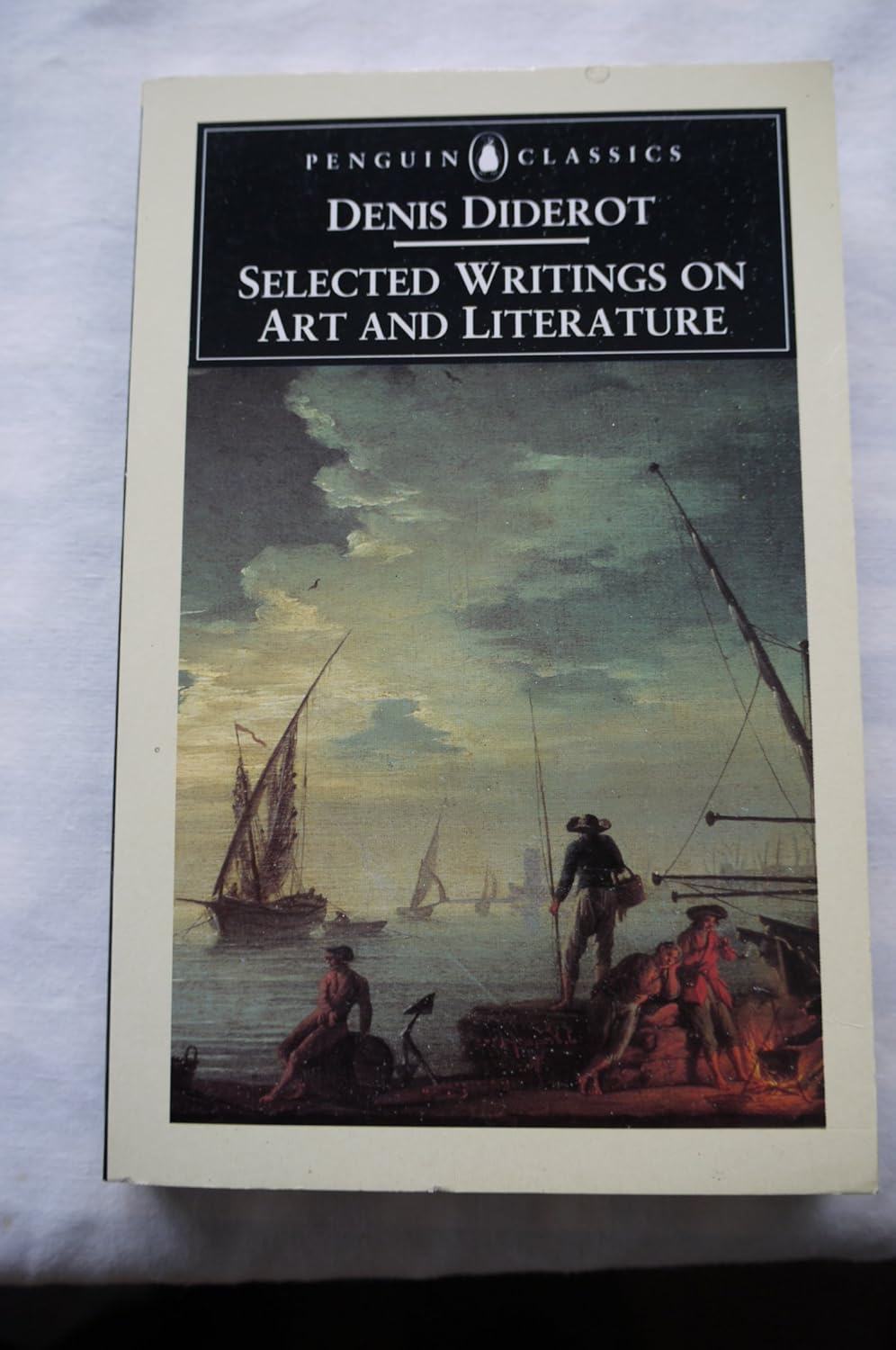
3:16: Some accuse you of licentiousness because you attack ethics and seem to want passions to run wild.
DD: We are constantly railing against the passions; to them we ascribe all of man's afflictions while forgetting that they are the source of all pleasures. But what provokes me is that only their adverse side is considered. And yet only passions and great passions can raise the soul to great things. Without them the sublime no longer exists either in morals or in creativity. It is said that desire is a product of the will, but the converse is in fact true: will is a product of desire. So hurrah for wisdom and philosophy!—the wisdom of Solomon: to drink good wines, gorge on choice foods, tumble pretty women, sleep on downy beds; outside of that, all is vanity. To attempt the destruction of our passions is the height of folly. What a noble aim is that of the zealot who tortures himself like a madman in order to desire nothing, love nothing, feel nothing, and who, if he succeeded, would end up a complete monster! I also think, Richard that bad company is as instructive as licentiousness. One makes up for the loss of one's innocence with the loss of one's prejudices.
3:16: You yourself have written novels that seem libertine novels to be honest Dennis.
DD: I admit to you that the Pensées, the Bijoux, and the Lettre sur les aveugles are debaucheries of the mind that escaped from me; but I can ... promise you on my honour (and I do have honour) that they will be the last, and that they are the only ones .
3:16: Oh I quite liked them so don’t stop on my account. You think women have a bad time with men don’t you and that they’re angry?
DD: There is no kind of harassment that a man may not inflict on a woman with impunity in civilized societies. Impenetrable in their dissimulation, cruel in their vengeance, tenacious in their purposes, unscrupulous as to their methods, animated by profound and hidden hatred for the tyranny of man — it is as though there exists among them an ever-present conspiracy toward domination, a sort of alliance like that subsisting among the priests of every country.
3:16: Do you think humans are just naturally bad?
DD: Don’t be an idiot Richard. It is not human nature we should accuse but the despicable conventions that pervert it.
3:16: Turning to the arts now, you see the theatre as creating a fourth wall, and think that the art of the great actor consists of displaying the illusion of feeling. The reason is that if the great actor were to become emotional he would not be able to play the same part in the theatre in repeat performances with the same success. Also, those actors who depend on feeling when performing usually give unpredictable or uneven performances?
DD: The pit of a theatre is the one place where the tears of virtuous and wicked men alike are mingled. I myself saw what I am going to tell you. Garrick stuck his head out of a door, and, within four or five seconds his face changed from delirious joy to moderate cheerfulness, from this cheerfulness to serenity, from serenity to surprise, from surprise to astonishment, from astonishment to sadness, from sadness to dejection, from dejection to fear, from fear to horror, from horror to despondency, and from this last emotion back up the ladder to the first.
3:16: You think that great poets require great events?
DD: Genius is present in every age, but the men carrying it within them remain benumbed unless extraordinary events occur to heat up and melt the mass so that it flows forth. Poetry must have something in it that is barbaric, vast and wild. When shall we see poets born? After a time of disasters and great misfortunes, when harrowed nations begin to breathe again. And then, shaken by the terror of such spectacles, imaginations will paint things entirely strange to those who have not witnessed them.
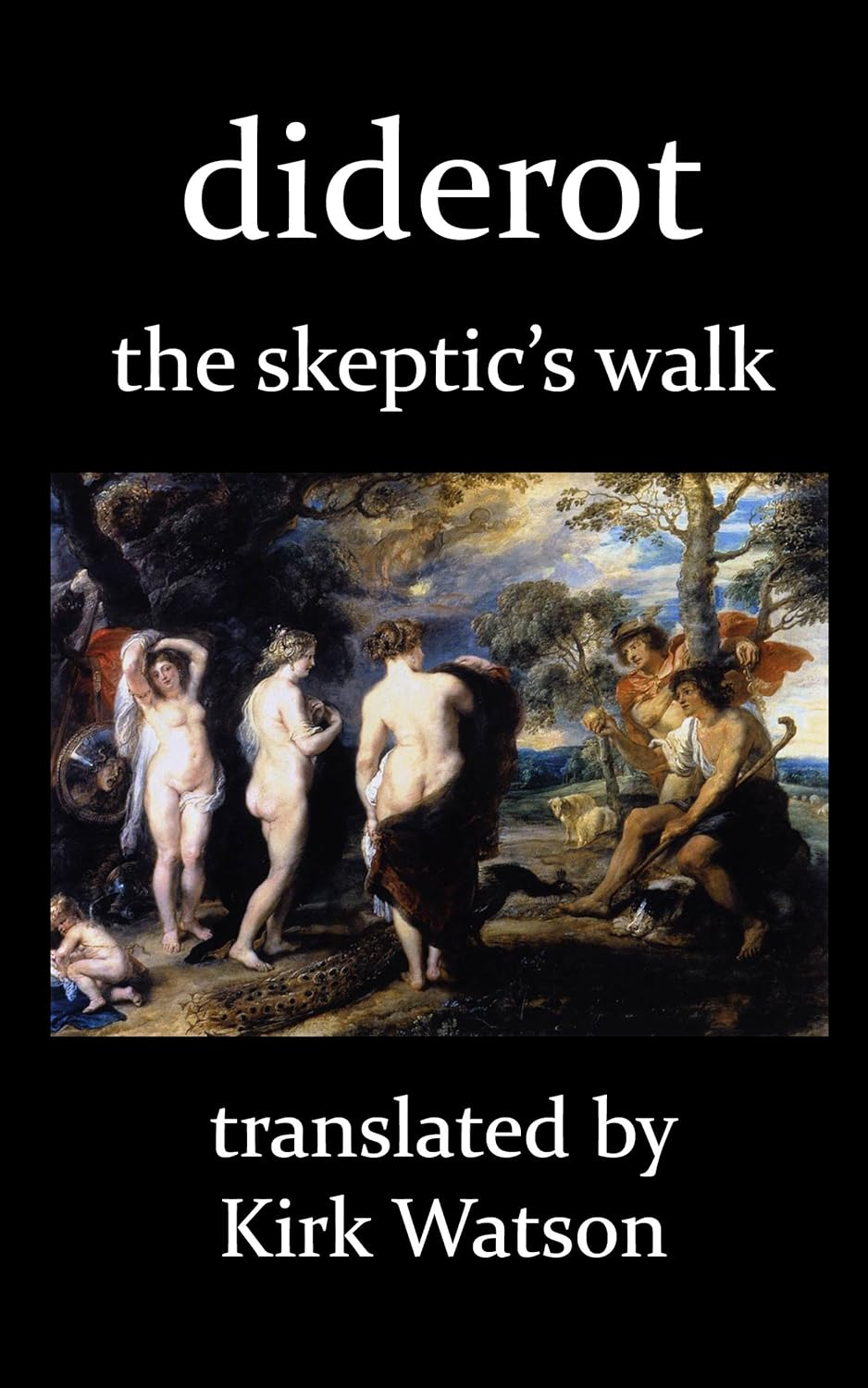
3:16: What of the sublime?
DD: If there is one realm in which it is essential to be sublime, it is in wickedness. You spit on a petty thief, but you can't deny a kind of respect for the great criminal.
3:16: You have the usual French prejudice against Shakespeare.
DD: Richard, Shakespeare’s fault is not the greatest into which a poet may fall. It merely indicates a deficiency of taste.
3:16: And what of government Dennis? Are you a democrat?
DD: The good of the people must be the great purpose of government. By the laws of nature and of reason, the governors are invested with power to that end. And the greatest good of the people is liberty. It is to the state what health is to the individual. There is no true sovereign other than the nation, and there can be no true legislator other than the people. The general interest of the masses might take the place of the insight of genius if it were allowed freedom of action.
3:16: One thing you hate is arbitrary rule – no matter who delivers such a thing, you see it as intolerable don’t you?
DD: Yes Richard, even the arbitrary rule of a just and enlightened prince is always bad. His virtues are the most dangerous and the surest form of seduction: they lull a people imperceptibly into the habit of loving, respecting, and serving his successor, whoever that successor may be, no matter how wicked or stupid. 3:16: You think a problem with the present state of things is that we reward neither talent nor virtue> DD: In any country where talent and virtue produce no advancement, money will be the national god. Its inhabitants will either have to possess money or make others believe that they do. Wealth will be the highest virtue, poverty the greatest vice.
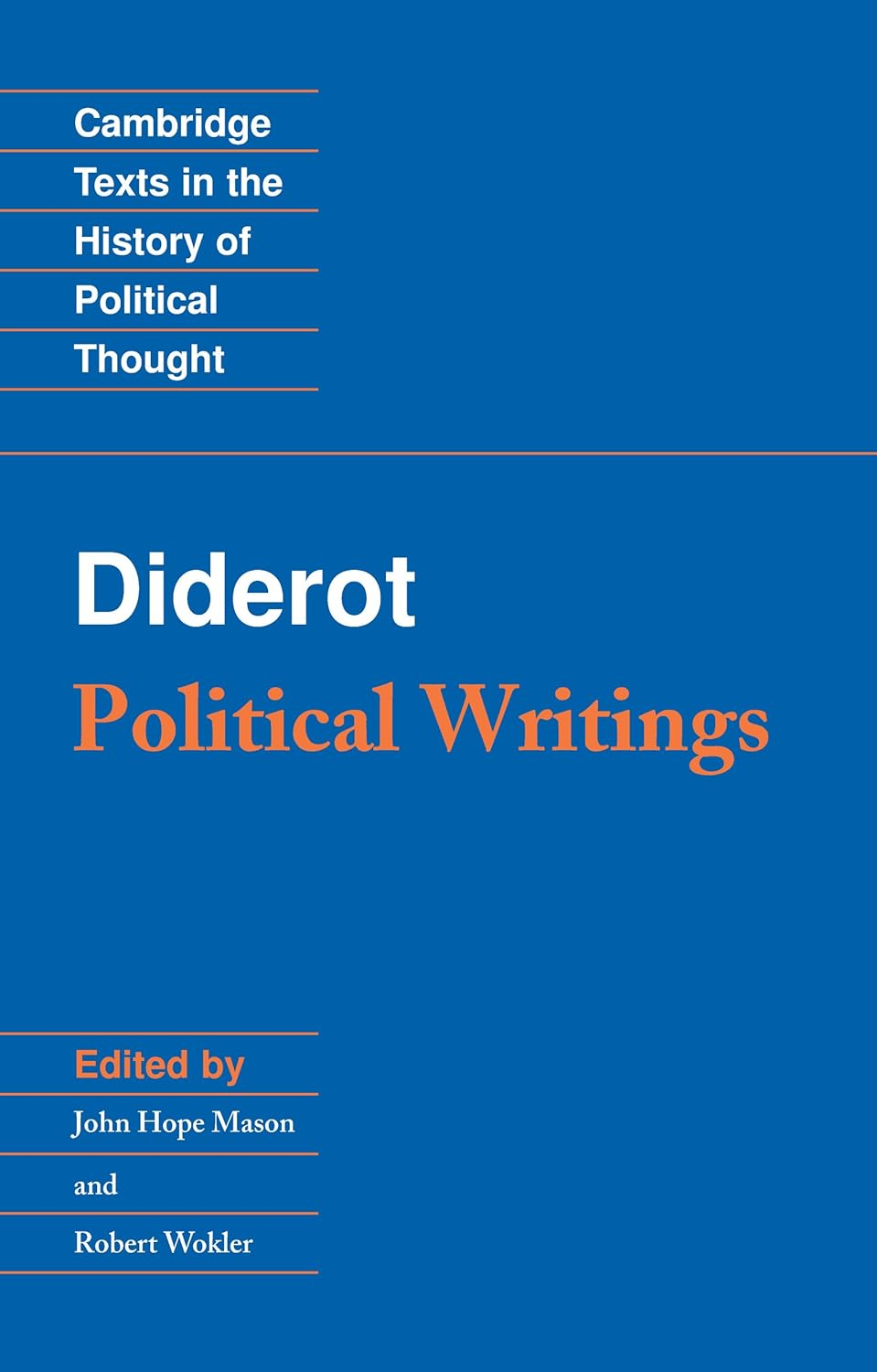
3:16: As we come to the end of our interview can you perhaps reflect on where your philosophical journey has taken you to.
DD: How old the world is! I walk between two eternities.What is my fleeting existence in comparison with that decaying rock, that valley digging its channel ever deeper, that forest that is tottering and those great masses above my head about to fall? I see the marble of tombs crumbling into dust; and yet I don’t want to die! The more man ascends through the past, and the more he launches into the future, the greater he will be, and all these philosophers and ministers and truth-telling men who have fallen victims to the stupidity of nations, the atrocities of priests, the fury of tyrants, what consolation was left for them in death? This: That prejudice would pass, and that posterity would pour out the vial of ignominy upon their enemies. O Posterity! Holy and sacred stay of the unhappy and the oppressed; thou who art just, thou who art incorruptible, thou who findest the good man, who unmaskest the hypocrite, who breakest down the tyrant, may thy sure faith, thy consoling faith never, never abandon me! I am beginning to feel that I am growing old; soon, I shall have to eat mush like children. I shall no longer be able to speak, which will be a rather great advantage for others and but a small inconvenience for myself. The time in which I count in years is gone; that in which I count in days is here.I had thought that the fibres of the heart would grow callous with age, it's not at all the case. I am not sure that my sensitivity hasn't increased; everything moves me, affects me. To fade out between a man feeling your pulse and another bothering your head; not to know where one comes from, why one came, where one is going …
3:16: Do you feel gratitude towards anyone?
DD: Gratitude is a burden, and every burden is made to be shaken off.
3:16: And are there five books you could recommend that would take us further into your philosophical world?
DD: 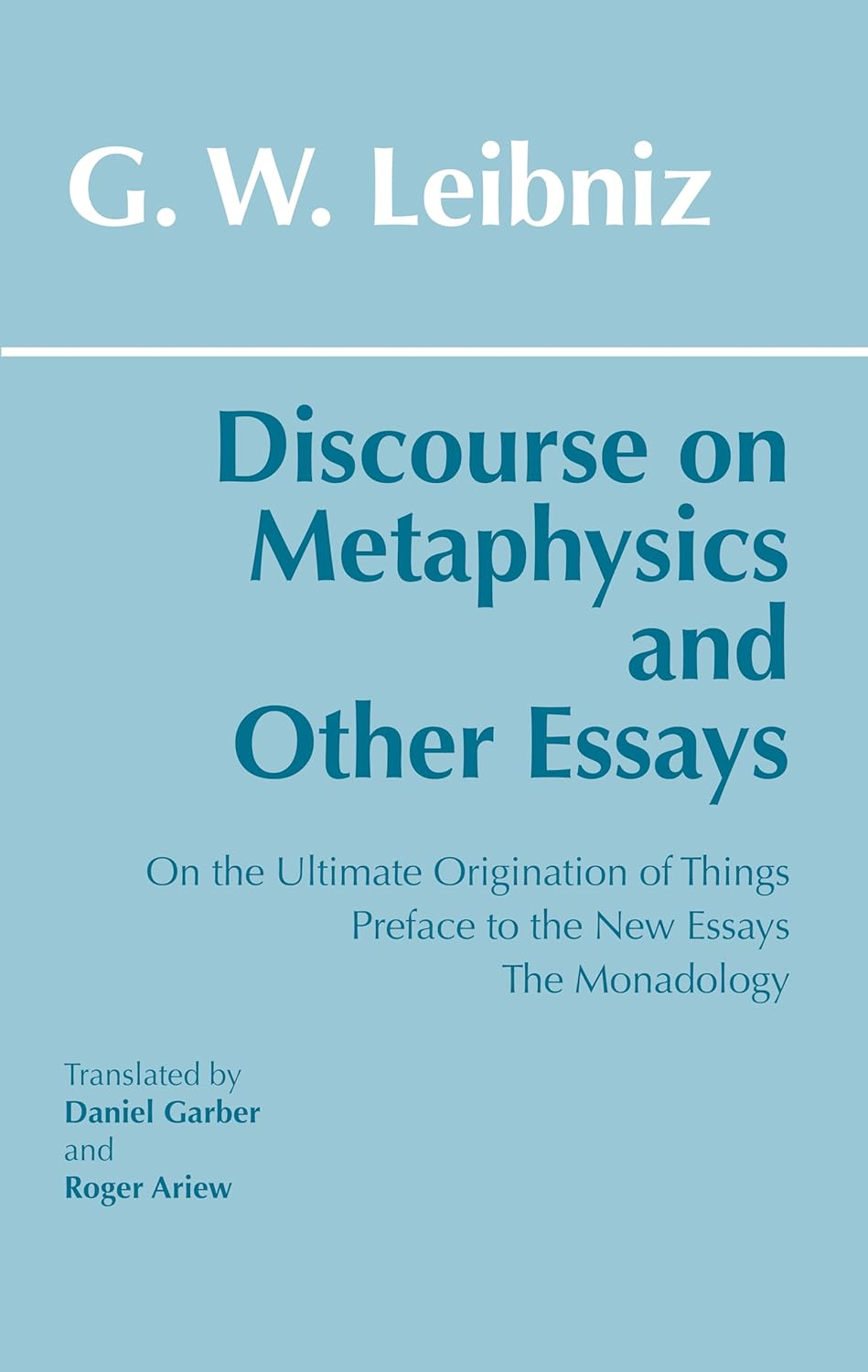
Leibniz
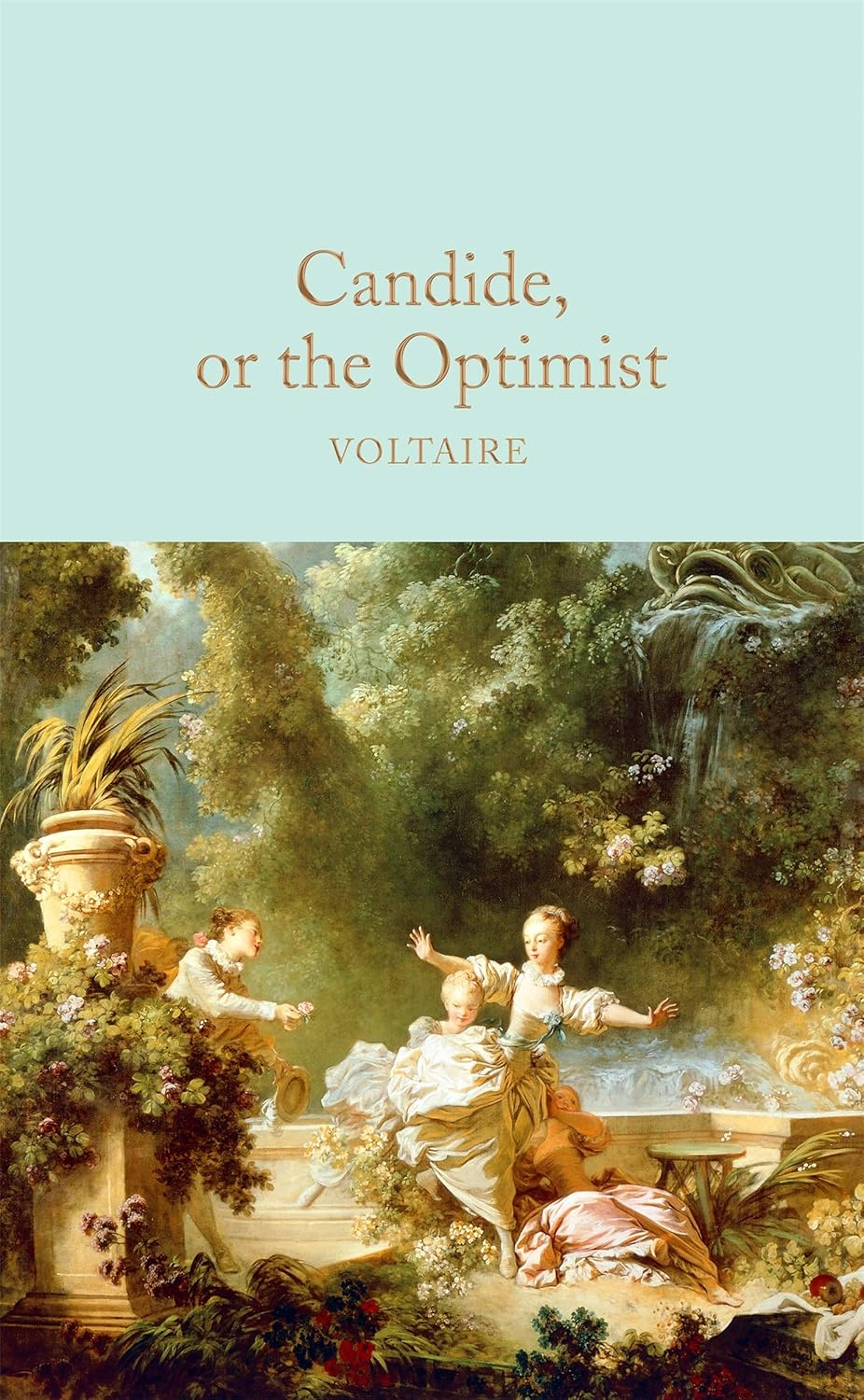
Voltaire

Rousseau

Shaftesbury’s An Inquiry Concerning Virtue and Merit

Baron d’Holbach’s Système de la Nature
Other Interviews:
Sade, Herbart, Helmholtz, Heine, Rousseau, Cohen, Machiavelli, LaMettrie, Smith, Buchner, Lange, Newton, Berkeley, Hobbes, Locke, Cudworth, Hume, Leibniz, Leporin Erxleben, Fichte, Schiller, Herder, Kierkegaard, Schelling, Kant, Dilthey, Marx, Descartes, Hegel, Schopenhauer, Nietzsche
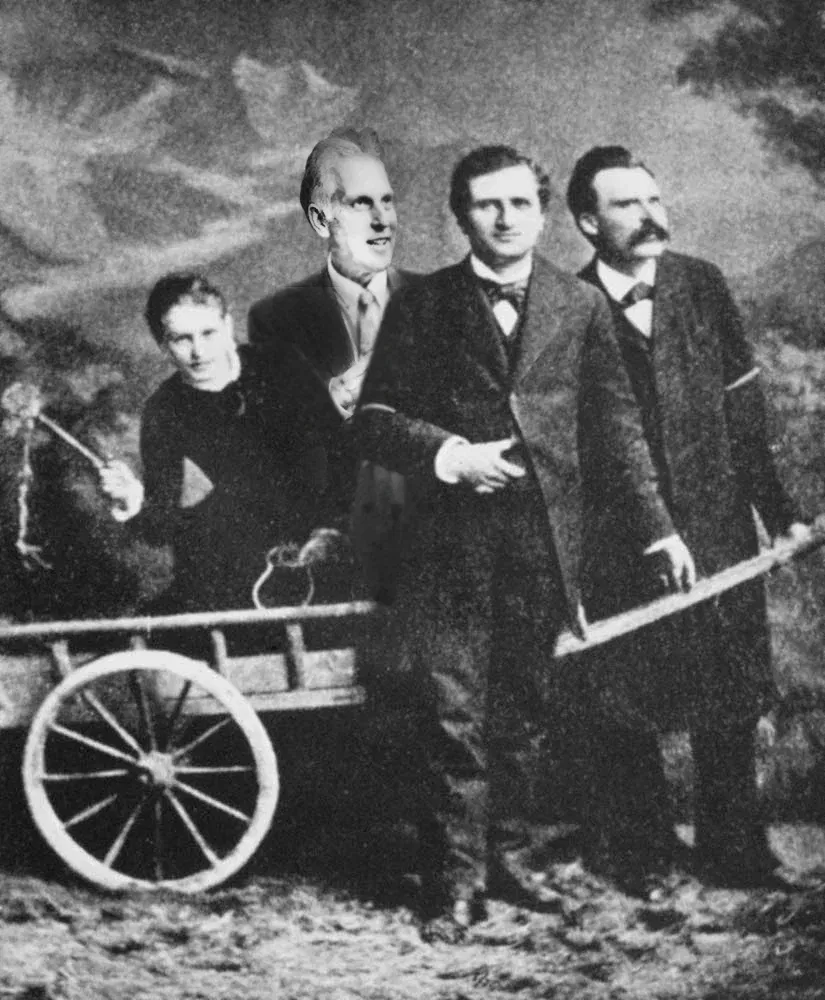
About the Author
Richard Marshall is still biding his time.